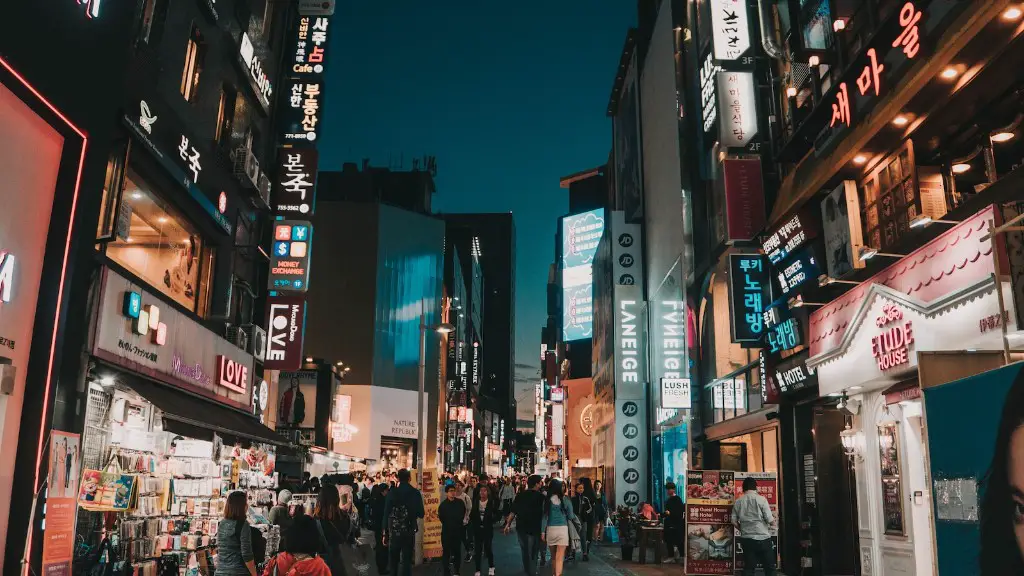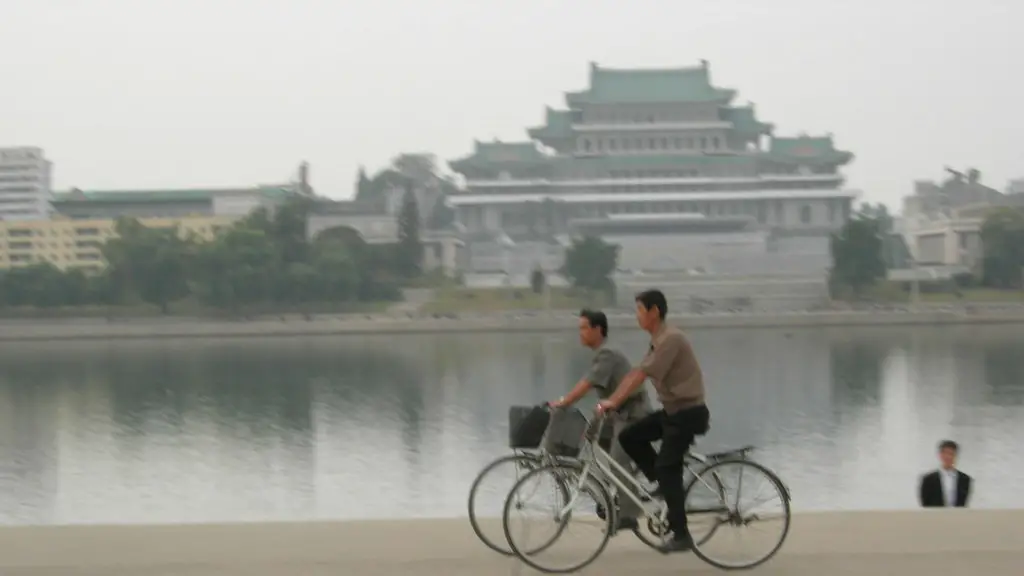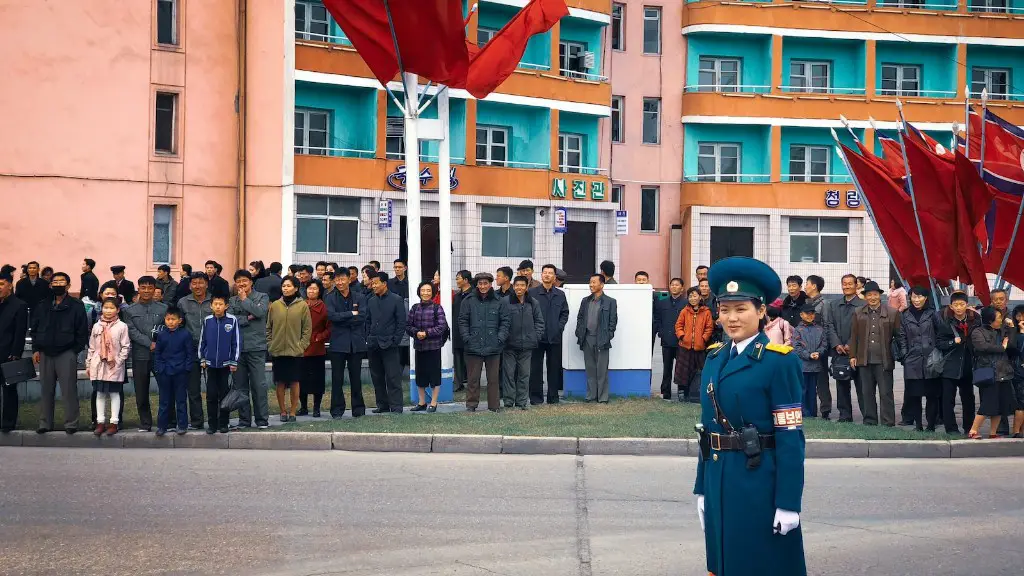History of Lawmaking in North Korea
Lawmaking in North Korea is closely guarded by the government, with higher-level policies being set and decided through the Supreme People’s Assembly. Power is consolidated in the hands of Pyongyang’s ruling party, the Korean Workers’ Party, and all top-level decisions are made by its rulers. As a result, North Korea’s citizens are subject to a top-down system that has very little flexibility. However, the country’s lawmaking system is rooted in its Soviet style of government, and a history of Socialist Revolution.
Of particular importance is the 1982 Constitution of the Democratic People’s Republic of Korea, which outlines the DPRK’s guiding principles and sources of law. Subsequent legislation has been published in the Annual Collections of Laws and Regulations. These laws have been gradually amended over time to reflect the changing political and economic situations in North Korea.
The Supreme People’s Assembly is the supreme organ of the state power, and is responsible for overseeing economic planning and making laws and decrees. The assembly is composed of deputies from 600-odd districts in North Korea, with one deputy representing each district. On the whole, the Supreme People’s Assembly acts as a rubber stamp, with members having to agree on all policy decisions. This makes it difficult for citizens to express their opinions, as the assembly is typically far removed from public opinion.
The Role of the Judiciary in North Korea
The judiciary in North Korea plays an important role in upholding the country’s laws. The judicial branch is tasked with overseeing court proceedings and ensuring that citizens comply with the laws and regulations set out by the Supreme People’s Assembly. There are several levels of courts in the DPRK, with the highest being the Supreme Court. The Supreme Court is responsible for reviewing and deciding appeals in all civil and criminal cases, as well as reviewing and approving death sentences.
The court system in North Korea is closely monitored by Pyongyang’s Ministry of Legal Affairs, which acts as the government’s legal advisor. It is responsible for overseeing the judicial system and helping to ensure that the laws and regulations that are set by the Supreme People’s Assembly are followed.
Despite the tight control that the government has over the judicial system, there is still some room for citizens to contest laws and regulations that they believe to be unfair. For example, the Supreme Court has been known to overturn certain sentences handed down in criminal cases, usually in cases where the defendant can prove that they were wrongfully convicted.
How Laws are Enforced in North Korea
In North Korea, the enforcement of laws is largely carried out by the security forces. The security forces are subdivided into several branches, each of which is responsible for enforcing a different part of the law. These include the Ministry of Public Security, the Ministry of State Security, the Ministry of People’s Security and the Bureau of People’s Security.
The security forces are responsible for deterring and prosecuting crimes, as well as ensuring that laws are upheld. They have wide-ranging powers to investigate and search for criminals, and to prosecute suspects for any breaches of the law. In some cases, the security forces are authorized to use force if laws are violated.
The security forces are also responsible for controlling access to the internet and other communication media, as well as ensuring that freedom of the press is upheld. In many cases, the security forces are used to suppress dissent and stifle protest. This has led to some allegations of human rights abuses being committed by security forces in North Korea.
International Influence on North Korean Lawmaking
Despite the heavy-handed approach of the North Korean government, there has been some international influence on the country’s laws. For instance, in the wake of the first US-North Korea summit in 2018, the country started to incorporate more international human rights conventions into its laws and regulations. This includes conventions relating to the protection of children’s rights and the prevention of torture.
International influence can be seen in other areas too. For example, North Korea has started to incorporate more market-oriented policies into its economy. This has been driven in part by the UN’s International Labour Organization, which has encouraged the country to move away from its centrally planned economy.
It is clear, then, that North Korea’s lawmaking process is heavily influenced by the country’s leaders. However, there is also evidence that North Korea is taking some steps to incorporate international standards into its laws and regulations. This could signal a more open and progressive approach from Pyongyang in the future.
Influential Organizations for Lawmaking in North Korea
Organizations such as the International Bar Association and the United Nations Human Rights Council have been influential in setting a higher standard of human rights in North Korea. These organizations have advocated for the protection of citizens’ rights and the upholding of international humanitarian laws. This has had a largely positive effect on the legal system in North Korea, as the government has had to adhere to international standards when drafting new laws and regulations.
The UN and international organizations have also pushed for North Korea to open up its legal system to outside scrutiny. For example, in 2010 the UN sent a team of investigators to the country to look into the human rights situation there. This served to highlight any abuses of power and recommend reforms to the legal system. The UN’s involvement and advocacy was instrumental in North Korea’s decision to pass a new criminal code in 2012.
The International Bar Association has also been instrumental in pushing for the protection of lawyers in North Korea and the adoption of international standards in the legal system. The organization helps to provide legal support for lawyers who have been unlawfully detained or persecuted for their work, as well as providing legal advice to those facing unfair trials.
Impact of the Current System of Lawmaking
The current system of lawmaking in North Korea has had a profound impact on the lives of its citizens. This can be seen in a number of areas. For instance, citizens have very little freedom of speech and expression, as the laws relating to media and publishing are heavily censored. This has resulted in a stifling of independent thought and expression.
Furthermore, citizens have limited access to basic rights such as the right to fair trial or the right to freedom of assembly. As a result, citizens lack the ability to challenge laws and regulations that they deem to be unfair or unjust. This has had a knock-on effect on the economy, as businesses lack the legal protections needed to thrive. This has created a cycle of poverty, as businesses are unable to invest in their operations or expand to meet growing demand.
Finally, the legal system in North Korea is largely opaque and closed off to outsiders. This has meant that citizens have limited access to information about laws, regulations and court rulings.This has created an environment where abuses of power are difficult to detect and citizens are largely in the dark about their legal rights.
Outside Pressure and Change in Lawmaking
Over the past few years, there has been increasing pressure on North Korea to introduce reforms to its legal system. This is being driven by the international community, particularly from human rights organizations. These organizations have been demanding that the country enacts reforms to protect basic human rights and adhere to international standards.
In response, the North Korean government has taken some steps to introduce reforms. For example, the government recently enacted a new criminal code that addressed some of the potential abuses of the law. There are also signs that the government is starting to pay more attention to citizens’ right to freedom of expression, as it recently relaxed its censorship of the media and allowed more newspapers to be published.
However, it remains to be seen whether these reforms will last, or if they will be rolled back in the future. It is clear, though, that North Korea is slowly starting to respond to pressure from outside groups and is making some progress towards introducing a more progressive and just legal system.
North Korean Legal System and the Rule of Law
The rule of law is an important concept in the DPRK. It is based on the principle that laws should be applied equally and fairly to all citizens. This is one of the core values of the North Korean legal system and its principles are enshrined in the DPRK constitution.
However, in reality, the rule of law is not always given the respect it deserves. This is due to the tight control that the government has over the legal system. In many cases, laws are distorted or ignored in order to serve the interests of the ruling party. This has led to a lack of faith in the legal system, as citizens have seen laws being used to further the agenda of the ruling elite.
The lack of faith in the legal system has had a damaging effect on the country. This can be seen in the lack of investment in the economy, as businesses are unwilling to take risks due to the unpredictable nature of the law. It can also be seen in the increasing levels of corruption and bribery, as citizens seek to circumvent the law in order to get ahead.
Conclusion of North Korean Lawmaking System
Ultimately, North Korea’s lawmaking system is firmly in the hands of the ruling party. Lawmakers and the judiciary have very little power to influence the country’s laws and regulations. This has led to an opaque and restrictive legal system that has limited the rights and freedoms of North Korean citizens.
However, there are signs that the North Korean government is starting to take some steps towards reform. This is in part due to pressure from the international community, which is pushing for the protection of basic human rights and the adherence to international standards. It remains to be seen, though, whether this will translate into concrete change in the country’s laws and regulations.





